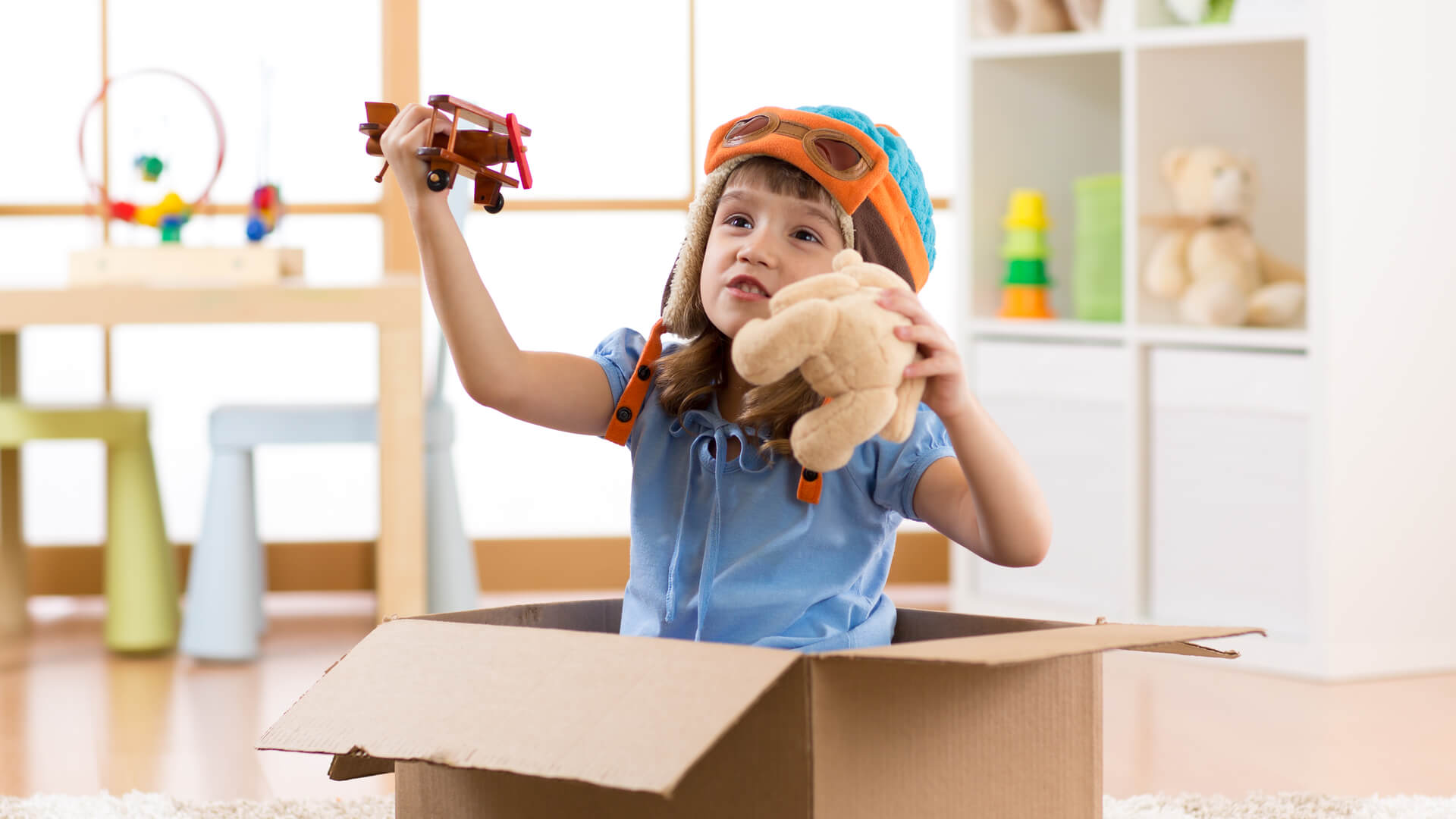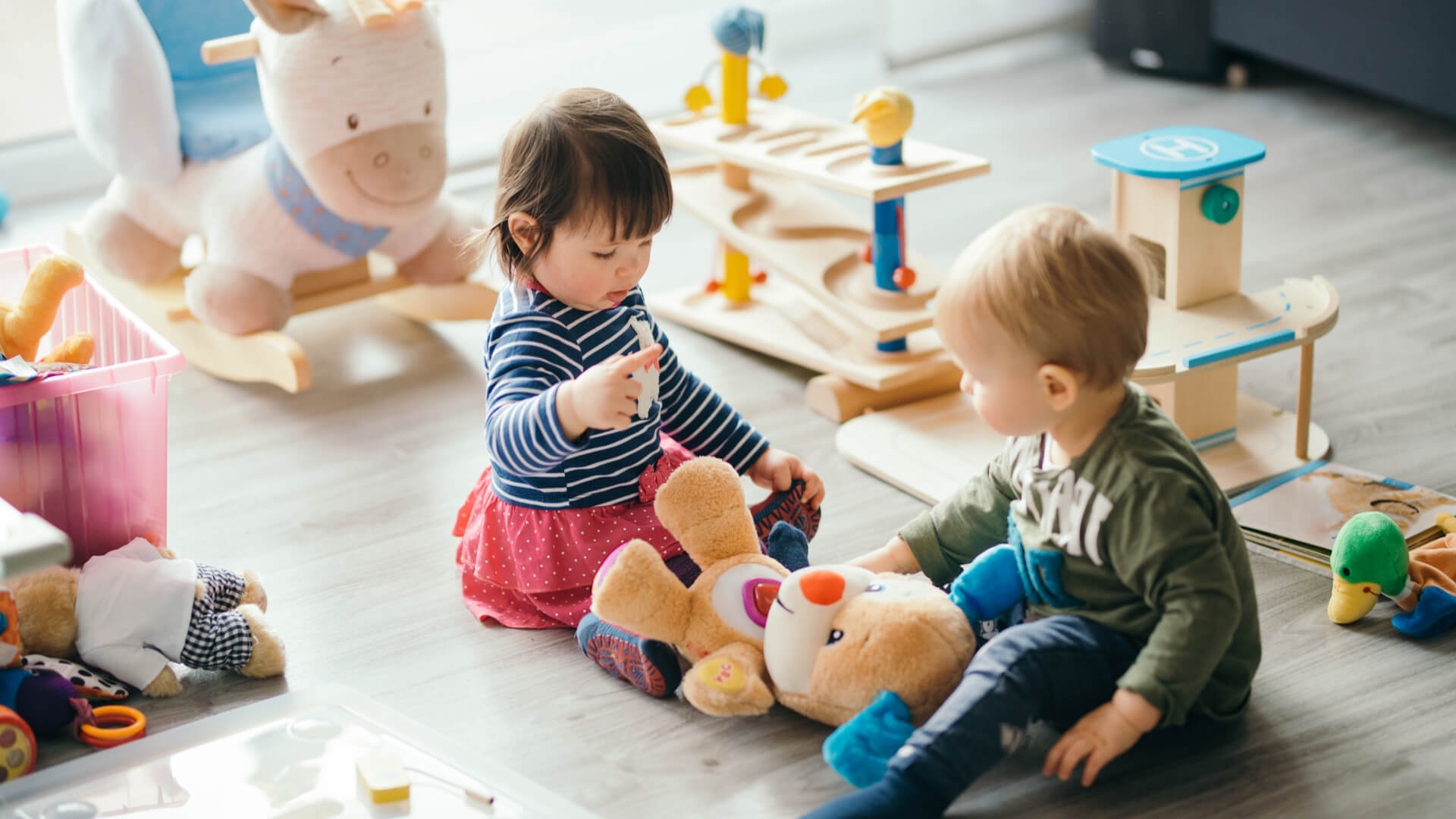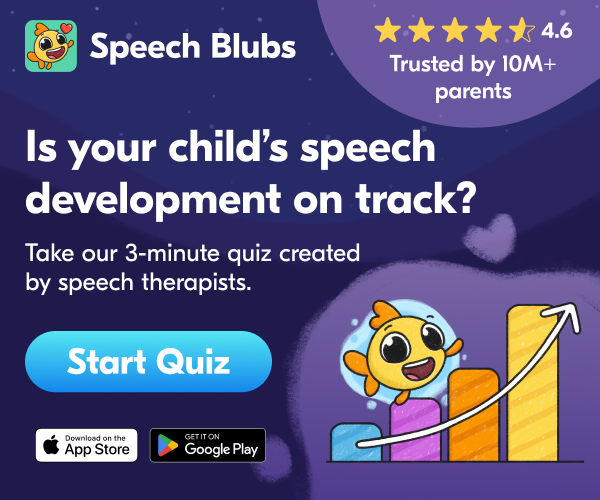6 Ways Play Benefits Toddler Development
In This Article
- 6 Ways Play Benefits Toddler Development
- PLAY Facilitates Speech and Language Development
- PLAY Bolsters Mental Health
- PLAY Promotes Social Skills
- PLAY Builds Curiosity and Imagination
- PLAY Fosters a Sense of Independence
- PLAY Strengthens Cognitive Skills
- Give Your Toddler the Gift of Play
Children are not obliged to play, however, it is something they are naturally driven to do. And for good reason. It is how they learn about and explore their world.
In fact, the United Nations High Commission for Human Rights has declared play a basic right for children because it is an integral and necessary part of child development!
And then there is the American Academy of Pediatrics. In 2018, they advised all pediatricians are to “prescribe play” at well-child visits in the first two years of life!
That is how important play is.

The list of the benefits of play when it comes to child development is virtually endless. This is why books have been written on the subject.
Rather than writing another book, this article will provide parents and caregivers a quick overview on some of the key ways play benefits toddler development.
NOTE: For the purposes of this article “toddler” refers to children between the ages of 2 and 3.
6 Ways Play Benefits Toddler Development
PLAY Facilitates Speech and Language Development
Play is one of the best ways to promote speech and language development! Through play toddlers can freely vocalize and use new sounds, words, and phrases while putting meaning to them. Be sure to label objects your child is playing with, especially ones they may not be saying names for yet.
Follow your child’s lead during play. Perhaps your child is more interested in ripping paper, and putting it into and taking it out of a box rather than building with blocks. Go with it! Rip some paper along with them while saying, “I’m ripping paper too,” “the paper is in the box,” and “now I’m going to take some paper out of the box.” Language-building opportunities are pretty much everywhere!
Take bubbles, for example. If your child is able to blow bubbles this means their mouth muscles are pretty strong and have the coordination to blow a bubble. These muscles are also needed to make speech sounds. Encourage your toddler to blow bubbles on their own. Take turns blowing bubbles because it is also fun to run around and jump to catch the bubbles.
Take this time to say words like “blow,” “bubbles,” and “pop.” These words all contain the early developing sounds “b” and “p” that should be easy for late talking toddlers to imitate.
PLAY Bolsters Mental Health
Play is known to reduce anxiety and stress in children, yet children are given fewer opportunities for play for a variety of reasons. Giving your child the gift to play freely is a necessity! Play is also a way for children to learn about empathy, kindness, and compassion.
PLAY Promotes Social Skills
Toddlers typically partake in solitary or parallel play until they are closer to the age of 3. So, even when peers are present you will see children “doing their own thing.” However, they are often watching what the child next to them is doing.
Once children are between 3 and 4, their play ends up involving other children. This is when children begin negotiating and taking turns during play. All of this ends up helping them as they get older and when being part of a team becomes more essential.
PLAY Builds Curiosity and Imagination
Young children learn by doing and for them “doing” is almost always synonymous with playing. They will look at a cardboard box in a much different way than an adult does.
A great study was done that demonstrates this perfectly. In that study, researchers created a toy made out of various colorful tubes. Preschool age children were divided into groups. Some children were explicitly shown one thing this new toy could do. While in another group, the children were simply handed the toy to play with.
The researchers found that when the children were shown what to do, that is all they did. The children who were given no instructions found that they could do other things, and they played with the toy for much longer! You can read more about that study here.
PLAY Fosters a Sense of Independence
Solitary play is very important for toddlers. From a young age, children can gain independence when given opportunities to play on their own. Your child will end up being more confident, self-sufficient, and curious! As children get older, they will also build on their critical thinking skills when playing on their own.
PLAY Strengthens Cognitive Skills
Free play is essential for brain development. In fact, scientists say play can help build a better, stronger brain! According to Sergio Pellis, a researcher at the University of Lethbridge (Alberta, Canada), “the experience of play changes the connections of the neurons at the front of the brain.”
These changes help with a child’s development of emotional regulation, planning, and problem-solving.
Give Your Toddler the Gift of Play
In order to give children the extremely precious gift of play, adults need to understand its value. There is a big push for early academics and this takes away a child’s time to play. Numerous studies show that toddlers learn better from playing – this means free play which is not always adult-led or directed, than from learning through traditional methods such as worksheets and flashcards.
Save the ABCs and 123s for when your child is older.
The time to play is now!
 By Tanya Thibodeau
By Tanya Thibodeau

